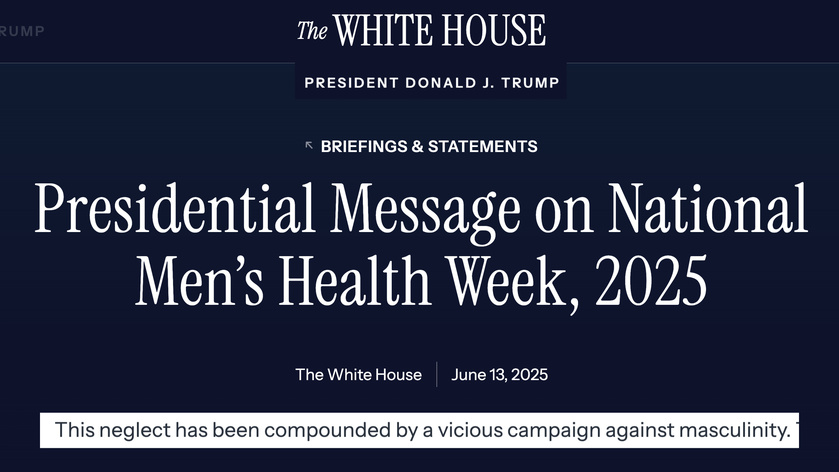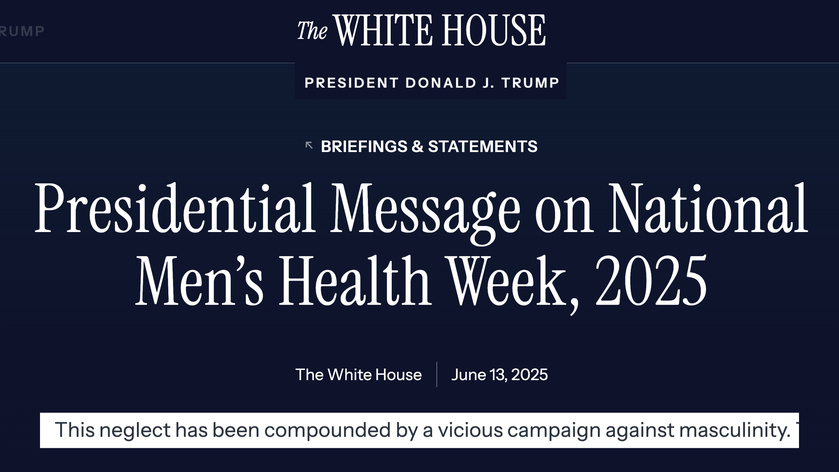
I’ve grown accustomed to hearing politicians talk about men’s health, usually focusing on the idea that men need to stop taking risks and start going to the doctor. The implication is that it’s somehow men’s fault that they’re at risk of dying early, and so on. Of course, this is what feminists often refer to as "blaming the victim."
That’s why I was so pleased to read Donald Trump’s message for National Men’s Health Week. He spoke candidly about the disadvantages men face and the ways in which men and masculinity have been targeted by a vicious campaign. It was a breath of fresh air.
No matter how you feel about Donald Trump, you have to give him credit for calling out the reality of men’s issues in today’s world. Below, I’ll paste the entire message for you to read. It’s a step in the right direction.
Link to the White House page https://www.whitehouse.gov/briefings-statements/2025/06/presidential-message-on-national-mens-health-week-2025/
For far too long, the health, happiness, and well-being of our Nation’s men have been neglected, contributing to a troubling reality: men in the United States have a life expectancy five years shorter than women. They visit healthcare providers less frequently and often delay critical care. Men tend to have their first heart attack an average of 10 years earlier than women.
This neglect has been compounded by a vicious campaign against masculinity. This war on manhood has left many American men in a state of loneliness, confusion, and emptiness, with devastating consequences: men in the United States are four times more likely to commit suicide and more than twice as likely to overdose than women.
This National Men’s Health Week, I make a solemn pledge to honor the men in America: we will always have your back—and we will never waver in our promise to embolden you to lead long, healthy, and safe lives.
Just last month, I proudly signed an Executive Order to deliver most-favored-nation pricing to American patients, improve access to quality medical care, and lower the price of medications. Together, with my Make America Healthy Again Commission, we are empowering men to prioritize their health and prolong their lives.
Under my leadership, we will relentlessly pursue a healthier future for the men of our nation. We will always lift you up rather than tear you down, and we will champion the voices, values, and wellness of hardworking American men across our country.



















